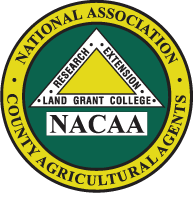FLORIDA-FRIENDLY LANDSCAPING: A GRASS-ROOTS RESIDENTIAL PROGRAM THAT PROMOTES URBAN ENVIRONMENTAL STEWARDSHIP
Barber, L. A.1; Haddock, S.2; Momol, Dr. Esen, Ph.D.3; Bossert, John4; Lewis, Claire5; Rainey, D. P.6; Bain, C. J.71Extension Agent Il, U.F./IFAS.-Extension, Seffner, FL, 33584
2Commercial Horticulture Agent III, U.F./IFAS.-Extension, Seffner, FL, 33584
3Director, Florida-Friendly Landscaping Program, U.F./IFAS, Gainesville, FL, 32611
4Florida-Friendly Landscaping Program Manager, U.F./IFAS, Gainesville, FL, 32611
5Statewide Florida Yards & Neighborhoods Coordinator, U.F./IFAS, Gainesville, FL, 32611
6Regional Specialist Extension Agent lll, U.F./IFAS, Plant City, FL, 33563
7Education-Training Specialist lll, U.F./IFAS, Gainesville, FL, 32611
Abstract:
Situation: The State of Florida projects its population of 20 million will grow to 26 million over the next two decades, increasingly taxing available water resources and polluting surface and ground waters. Methods: 1) UF/IFAS administers FFL, with funding from the Florida Department of Environmental Protection and the US Environmental Protection Agency. 2) FFL provides educational outreach to residents, homeowners, builders and developers through its Florida Yards & Neighborhoods program and to commercial landscape professionals through the Green Industries Best Management Practices (GI-BMP) program that emphasizes water conservation and the reduction of nonpoint source water pollution through reduced water, fertilizer and pesticide use. 3) Statewide Extension Agents and Master Gardeners engage citizens to implement landscape and water sustainability practices. 4) Professional programs offered in multiple languages: English, Spanish and Creole. Results: In 2018, FFL reached 220,000 home owners saving 386,541,761 gallons of water (enough to supply 4,393 additional households for one year), $1,279,453 on utility bills, and $1,005,009 by utility companies on water preparation and delivery costs. From 2006-2019 over 63,918 landscape professionals have been trained in FFL™ GIBMP with over 54,139 becoming GIBMP certified. Professionals report positive changes in fertilizer, pesticide and irrigation practices, and changes in attitude and ability to communicate FFL™ principles to clients as a result of program education. Conclusions: A strategic study on Florida’s water resources, “Water 2070: Mapping Florida's Future - Alternative Patterns of Water Use in 2070", found that the state’s ongoing FFL™ program is fundamental to reducing future water demand and protecting water quality. Florida’s 2009 state legislation found FFL™ serves a compelling public interest in water conservation, protection and restoration. Deed restrictions or local ordinances may not prohibit FFL™ use by homeowners. FFL has achieved statewide impacts and recognition through documented knowledge gain, behavior change, principle implementation and professional certifications.
